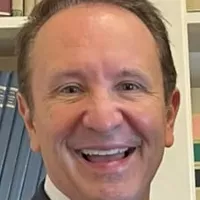The Ten Commandments, central to Judeo-Christian tradition, are a set of moral and ethical principles presented as a covenant between God and the Israelites. Found in the Hebrew Bible, their phrasing varies across three instances: Exodus 20:2–17, Deuteronomy 5:6–21, and Exodus 34:11–26 (known as the "Ritual Decalogue"), reflecting their dynamic nature in ancient Israel.
1923: Cecil B. DeMille's Silent Film "The Ten Commandments"
Cecil B. DeMille directed a silent film titled "The Ten Commandments" in 1923, featuring Theodore Roberts as Moses.
1953: Albrecht Alt's Interpretation of "Thou Shalt Not Steal"
In 1953, German Old Testament scholar Albrecht Alt published "Das Verbot des Diebstahls im Dekalog," suggesting that the commandment "thou shalt not steal" originally pertained to the prohibition of kidnapping and slavery. This aligns with the Talmudic interpretation of the commandment.
1956: Cecil B. DeMille's Epic Film "The Ten Commandments"
Cecil B. DeMille remade "The Ten Commandments" in 1956, this time as a lavish VistaVision production starring Charlton Heston as Moses. This version became a cinematic classic.
1956: Charlton Heston's Iconic Portrayal of Moses in "The Ten Commandments"
Charlton Heston's portrayal of Moses in Cecil B. DeMille's 1956 epic "The Ten Commandments" became an iconic representation of the biblical figure. This performance influenced later depictions, including Mel Brooks's comedic take in 1981.
1956: Fraternal Order of Eagles and Cecil B. DeMille's Ten Commandments Displays
During the 1950s and 1960s, the Fraternal Order of Eagles installed numerous Ten Commandments displays in public spaces like courthouses and schools. This movement coincided with Cecil B. DeMille's placement of similar monuments to promote his 1956 film "The Ten Commandments." These actions reflected the prevailing trend of civil religion in the mid-20th century U.S.
1981: Mel Brooks's Humorous Take on the Ten Commandments in "History of the World, Part I"
Mel Brooks, in his 1981 comedy "History of the World, Part I," included a satirical sketch about Moses receiving the Ten Commandments. Played by Brooks himself, Moses drops one of the three tablets, leaving only ten commandments instead of the original fifteen.
1989: Krzysztof Kieślowski's "Dekalog" Film Series
Polish director Krzysztof Kieślowski released "Dekalog" in 1989, a ten-part film series using each of the Ten Commandments as a thematic basis for exploring moral and ethical dilemmas.
2000: Musical Adaptation of the Ten Commandments
The year 2000 saw the debut of a stage musical adaptation of the Ten Commandments.
2002: Bernard M. Levinson's Critique of the Evolution of Ethics Theory
In 2002, Bernard M. Levinson challenged the prevailing scholarly view that the Ten Commandments represent an evolution of ethics from ritual to morality. He argued this perspective is rooted in a Christian bias, tracing back to Johann Wolfgang von Goethe's critique of Judaism. Levinson refuted the notion that the original commandments were primarily ritualistic, emphasizing the lack of historical evidence.
2004: New Musical Interpretation of the Ten Commandments
Another musical interpretation of the Ten Commandments premiered in 2004, showcasing the enduring influence of this ancient text on artistic creations.
2006: Miniseries Depicts the Story of the Ten Commandments
A miniseries delving into the story and significance of the Ten Commandments was released in 2006.
2007: Film Explores the Ten Commandments
Adding to the diverse interpretations, another film exploring the Ten Commandments was released in 2007.
2007: "The Ten" Film Explores Modern Dilemmas
The American film "The Ten," released in 2007, offered a contemporary take on the Ten Commandments, presenting ten interconnected stories that examine the commandments' relevance in modern life.
2010: Film Examines the Ten Commandments
A new film examining the Ten Commandments was released in 2010, demonstrating the continued relevance and interest in these moral principles.
October 2011: Thomas S. Monson's Address on the Ten Commandments
In October 2011, Thomas S. Monson, then president and prophet of the Church, delivered an address emphasizing the importance of the Ten Commandments. He stressed that they were not mere suggestions, but divine directives. He also highlighted the consistent numbering of the commandments, aligning with the Septuagint tradition.
2015: Thomas Römer's Interpretation of the Ark of the Covenant
Thomas Römer, in 2015, proposed that the tablets of law in the Ark of the Covenant were a symbolic replacement for something else. He suggested that the original Ark likely contained a cult image of Yahweh, possibly a statue or sacred stones representing Yahweh and Asherah.
2016: Contemporary Film Explores the Ten Commandments
In 2016, a contemporary film provided a fresh perspective on the Ten Commandments, reflecting their enduring impact on storytelling.
June 2024: Louisiana Mandates Ten Commandments in Public Schools
In June 2024, Louisiana became the first U.S. state to legally require the display of the Ten Commandments in all public school classrooms, a decision signed into law by Governor Jeff Landry.
Mentioned in this timeline

Jeff Landry is an American politician and attorney currently serving...
Trending

41 minutes ago Salsa Legend Willie Colón Dies at 75: Bronx-Raised Musical Pioneer
2 hours ago Juventus faces crisis after Como's lesson at Stadium; Roma may extend lead.

3 hours ago Elina Svitolina defeats Coco Gauff, faces Jessica Pegula in Dubai final.

3 hours ago Dusty May on Naismith Watch List: Coach of the Year Potential?
3 hours ago James Milner Breaks Premier League Appearance Record: Klopp Praises His Impact

4 hours ago Team Homan’s Olympic Curling Journey: Semifinal Setbacks and Future Games
Popular

Jesse Jackson is an American civil rights activist politician and...
Randall Adam Fine is an American politician a Republican who...

Barack Obama the th U S President - was the...

Ken Paxton is an American politician and lawyer serving as...

Bernie Sanders is a prominent American politician currently serving as...

Michael Joseph Jackson the King of Pop was a highly...